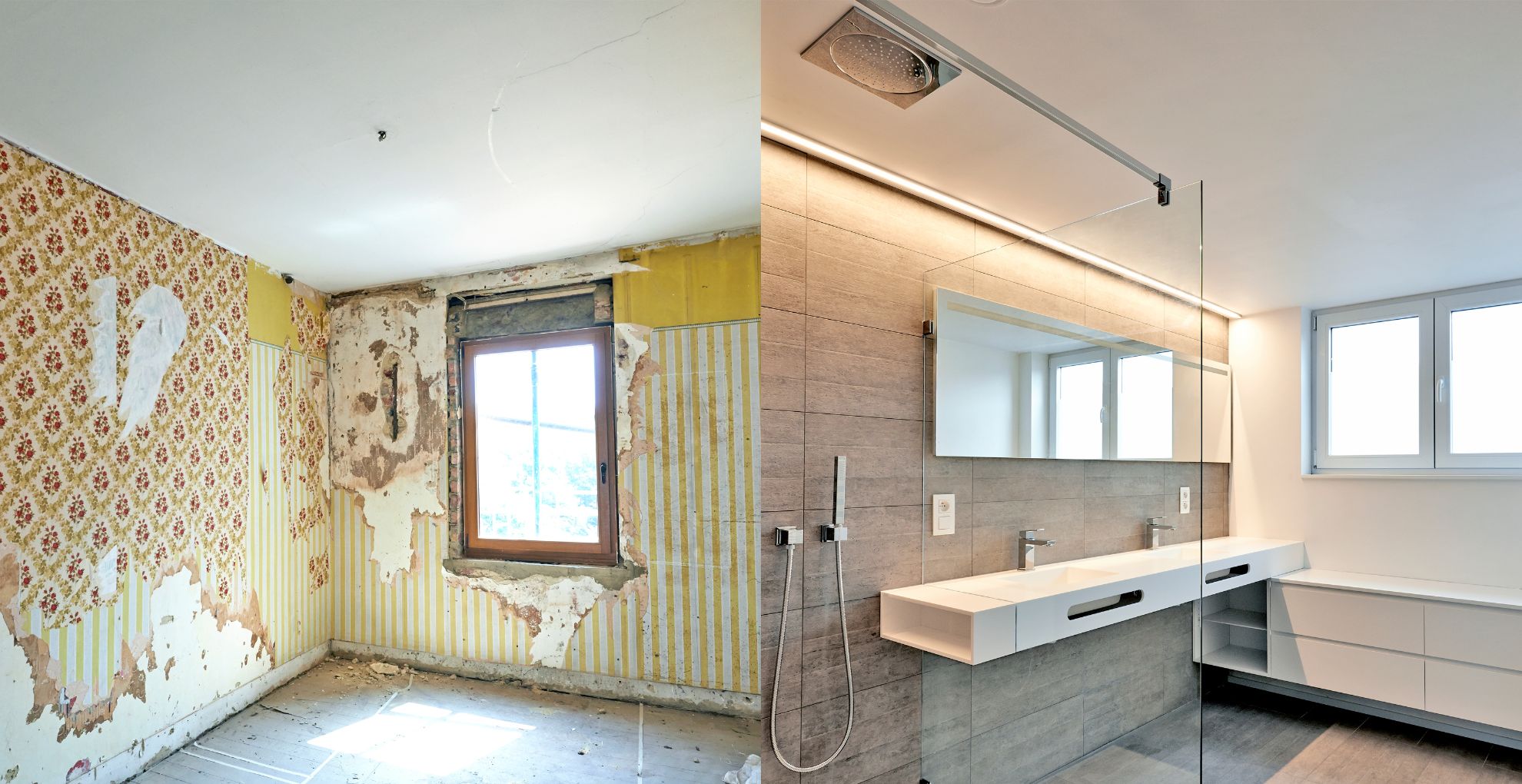Renovating your home is a major investment—one filled with excitement, stress, and a fair share of dust. Whether you’re adding a sleek new kitchen, expanding the square footage, or installing energy-efficient upgrades, renovations are meant to increase comfort, style, and home value. But amid all the planning and construction, many homeowners overlook a critical piece of the puzzle: updating their home insurance after renovations.
Skipping this step could lead to serious financial consequences if something unexpected happens, like a fire, flood, or even a lawsuit. If your insurance policy doesn’t reflect your home’s new value or its updated risk profile, you may be left underinsured or not covered at all.
Let’s walk through what changes you should make to your homeowners’ insurance after a renovation—and why it matters more than you might think.
Why Renovations Impact Home Insurance
Renovations Can Increase or Decrease Risk
Renovations change more than just the look and feel of your space—they change the overall risk profile of your home. For example, adding square footage, luxury appliances, or expensive materials increases the cost to rebuild your home in case of a disaster. That means your existing policy might no longer cover the full cost of repairs or replacement.
On the flip side, renovations that reduce risk—like updating old wiring or reinforcing the roof—can lower the likelihood of damage, which may qualify you for a reduced premium.
Insurance Must Reflect Current Home Value
When you bought your home, your insurance coverage was likely based on the condition and value of the home at that time. But after renovations, your property is probably worth significantly more. That’s why updating your home insurance after renovations is so important: the goal is to ensure your policy can cover the full cost to rebuild or repair your home in its new state.
Imagine completing a stunning $100,000 kitchen remodel only to have a fire destroy everything, and your outdated policy only covers the original kitchen’s value. That financial gap could fall entirely on you.
Renovations That May Raise Your Insurance Premium
Structural Additions and High-End Upgrades
One of the most common reasons to see an increase in your premium is due to expanded square footage. Adding a new room, finishing a basement, or building a second story raises the cost of rebuilding your home, so your policy limits should increase to match.
Likewise, high-end kitchen and bathroom remodels introduce more valuable materials and appliances. Think marble countertops, custom cabinets, or luxury soaking tubs. These upgrades need to be reflected in your policy’s personal property and dwelling coverage to avoid being underinsured.
Features That Raise Liability Risks
Adding attractive but risky features like a swimming pool, hot tub, or even a trampoline can boost your liability exposure. If someone gets injured using these features, you could be on the hook without the proper liability coverage.
Insurance companies often recommend increasing your personal liability limit or adding an umbrella policy to safeguard against large claims after such additions.
Specialized Systems or Expensive Materials
Eco-conscious upgrades like installing solar panels or smart home systems may also impact your premium. These features can be expensive to replace and might require additional endorsements to ensure full coverage under your policy.
If you’re switching to high-end siding or roofing materials that aren’t standard, your insurer may need to adjust the replacement cost calculations as well.
Renovations That Can Lower Your Insurance Premium
Safety and Risk-Reduction Upgrades
Not all renovations increase your insurance bill. Some can reduce your premium, especially those that lower your home’s risk of damage or liability.
Upgrades such as:
-
Replacing old plumbing or electrical systems
-
Installing fire sprinklers or smoke detectors
-
Upgrading your HVAC system
These improvements help prevent incidents like fires, floods, or structural damage, which could earn you discounts on your policy.
Roofing and Storm-Proofing Projects
Roof replacements are another great example. A new roof made of durable, fire-resistant, or storm-proof materials can drastically reduce your home’s risk exposure, especially in areas prone to hail, hurricanes, or heavy snowfall.
Homeowners who live in states like Florida or Texas often qualify for significant rate reductions if they use impact-resistant shingles or add hurricane straps during roof renovations.
Eco-Friendly and Energy-Efficient Improvements
Going green may also save you some green when it comes to insurance. Homes that achieve energy efficiency or sustainability certifications, like ENERGY STAR or LEED, might be eligible for lower premiums from insurers who recognize the reduced risk of damage and improved durability.
These upgrades can include:
-
Insulated doors and windows
-
Solar water heaters
-
Smart thermostats and home monitoring systems
Just make sure your home insurance after renovations reflects these updates so you don’t miss out on potential savings.
When and How to Notify Your Insurance Provider
Timing Is Key
You should contact your insurance company before you start any major renovation. This ensures you’re covered during the construction phase. If a contractor accidentally causes a fire or a neighbor trips on construction debris, you’ll want to know who’s liable.
Once the project is complete, it’s just as important to update your insurer again. A post-renovation policy update will adjust your coverage to account for your home’s new structure, features, and replacement value.
What Information to Provide
To make the update process smooth, gather the following:
-
Detailed receipts for materials and labor
-
Contracts and renovation permits
-
Before-and-after photos of the upgraded space
-
Square footage additions
-
Equipment or systems installed (e.g., solar panels, sprinkler systems)
This documentation will help your insurance provider accurately recalculate your home’s replacement cost and determine whether your policy needs to be adjusted.
How to Update Your Insurance Policy
Work With Your Insurance Agent
Your insurance agent is your best resource when navigating coverage changes. Schedule a time to walk through your renovation plans and discuss how they might affect your policy. This ensures you’re not missing any critical updates.
Ask about:
-
Policy limit increases
-
Additional riders or endorsements
-
Discounts for safety upgrades
Recalculate Replacement Cost
This is a big one. Your home’s replacement cost is what it would take to rebuild your house today with similar materials and quality. After a renovation, especially one involving high-end materials or design, the cost likely increases.
Use the updated specs and costs from your project to help your agent determine a new, accurate replacement value for your dwelling.
Consider Additional Coverage Options
Depending on the nature of your renovations, you might need to add or upgrade coverage, such as:
-
Liability coverage for injury-prone features like pools
-
Personal property riders for expensive electronics or custom furniture
-
Ordinance or law coverage if local codes require costly upgrades during repairs
Updating your home insurance after renovations isn’t just about increasing your premiums—it’s about protecting your financial investment.
Common Mistakes to Avoid After Renovating
Renovating is stressful enough without making preventable insurance mistakes. Here are some of the most common missteps:
-
Not contacting your insurer until it’s too late
-
Assuming renovations won’t affect your rate
-
Forgetting to increase personal property limits
-
Not accounting for increased liability exposure
-
Failing to document improvements with photos or receipts
Being proactive about your insurance can save you from heartache (and out-of-pocket costs) down the line.
FAQs About Home Insurance and Renovations
Do I need to update my insurance after minor renovations?
It depends. Repainting or replacing carpet likely doesn’t require a policy change. But adding built-ins, replacing major appliances, or installing smart tech might. Always check with your agent.
Will my premium always go up after a renovation?
Not necessarily. If your renovation includes risk-reducing upgrades—like a new roof, plumbing, or security system—you might even qualify for a lower premium.
Can I be denied coverage if I don’t report renovations?
Yes. Failing to notify your insurer about major renovations could void parts of your policy, especially if the upgrades significantly alter your home’s value or risk level.
How soon should I contact my insurer?
Before and after the renovation. That way, you’re covered during construction and fully protected when it’s complete.
Final Thoughts: Protect Your Investment
Your home is likely one of the largest financial investments you’ll ever make, and renovations can enhance that investment significantly. But they also bring new risks and responsibilities.
Taking the time to update your home insurance after renovations ensures your upgraded space is fully protected. From adding a guest suite to installing a new roof, every change you make affects how your home should be insured.
The good news? With a little planning and a call to your insurance agent, you can enjoy your renovated home with peace of mind, knowing it’s as protected as it is beautiful.
For more tips and inspiration, check out our latest renovation articles on our website and start planning your next home upgrade with confidence.






